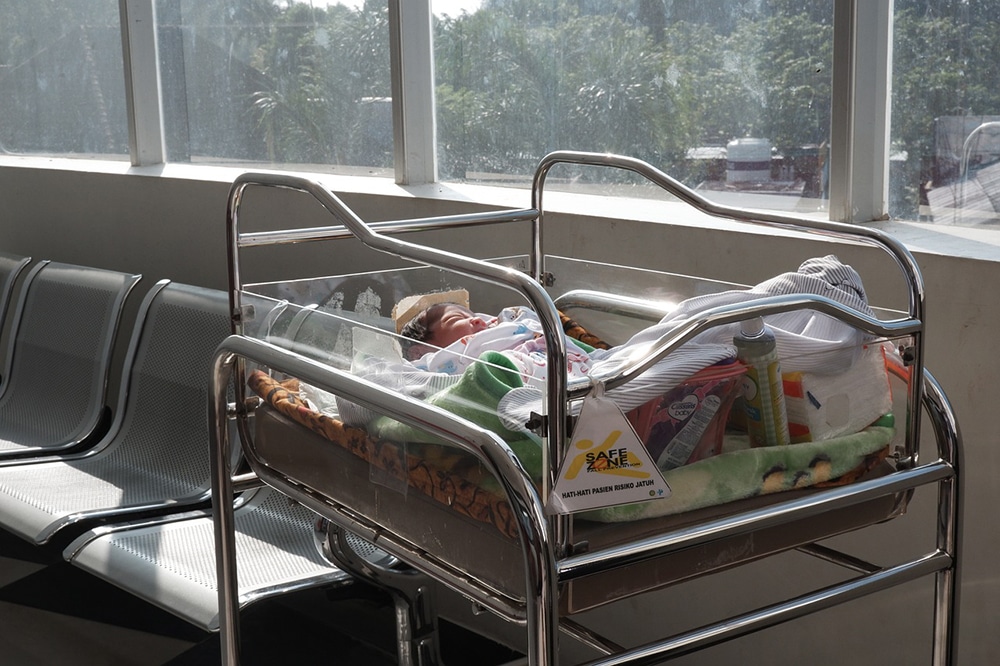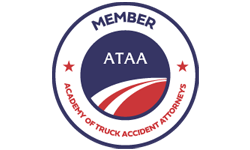
Necrotizing enterocolitis (NEC) can be a scary condition for parents to go through with their infants. Most infants fully recover, but may be left with lasting complications. Keep reading to learn about necrotizing enterocolitis and its symptoms so you can spot it and treat it as soon as possible.
What Is Necrotizing Enterocolitis?
NEC is a tragic gastrointestinal condition that affects premature babies. Its most common characteristic is intestinal inflammation in infants. Intestinal inflammation typically leads to the death of intestinal tissues and holes in the intestines. Bacteria can leak into the bloodstream through those holes that form. The disease typically develops within two to six weeks after a baby’s birth.
There are four main types of NEC characterized by their symptoms and development. The types of necrotizing enterocolitis include the following:
- Classic: Classic NEC is most common in premature babies born before 28 weeks of pregnancy. It often comes on without warning.
- Term infant: This type of NEC occurs in full-term babies. Usually, these babies have an underlying condition that makes them more susceptible to this type of NEC.
- Transfusion-associated: Blood transfusions sometimes cause NEC. Approximately 1 in 3 infants develop transfusion-associated NEC within three days of receiving a blood transfusion.
- Atypical: NEC is classified as atypical when an infant develops it within their first week of life or before their first feeding.
Causes of Necrotizing Enterocolitis
An estimated 90% of babies who develop necrotizing enterocolitis were born prematurely. However, premature birth isn’t the cause of necrotizing enterocolitis alone. Rather, it makes babies more susceptible to the disease.
There is a 0.1% chance of a premature baby developing necrotizing enterocolitis. There is only a 0.01% chance of full-term babies developing NEC.
Symptoms of Necrotizing Enterocolitis
Symptoms of NEC range from mild to severe and life-threatening. They can differ from child to child. Symptoms usually show up within the first two to six weeks of life. The following are some common symptoms of necrotizing enterocolitis that parents should watch out for in their preemie babies:
- Abdominal symptoms: Pain, swelling, or bloating
- Weight-related symptoms: Refusing to eat, lack of weight gain, and feedings not moving through the intestines
- Digestive symptoms: Diarrhea with bloody stool and green or yellow vomit
- Energetic symptoms: Lethargy and sluggishness
- Cardiovascular symptoms: Low heart rate, low blood pressure, changes in body temperature, and trouble breathing
If you notice your baby experiencing any of these symptoms, call your doctor immediately. The sooner a doctor diagnoses NEC, the sooner they can start treating the infant, and the better your child’s chances are of fully recovering with minimal complications.
Necrotizing Enterocolitis Complications
Unfortunately, the effects of NEC can last a lifetime, even once a baby recovers from the infection. The following are some possible complications of NEC:
- Secondary infection: Holes in the intestines can lead to further infection of the abdominal cavity, called peritonitis. Peritonitis increases the risk of sepsis, a life-threatening blood infection.
- Short bowel (short gut) syndrome: NEC-related gut damage can lead to short bowel syndrome, a condition that makes it hard for the body to absorb nutrients. This condition requires lifelong care and sometimes tube feeding.
- Intestinal strictures: Some babies develop narrowed intestines after recovering from NEC. This can make it difficult for them to properly digest and move nutrients through their gastrointestinal systems. It may require surgery.
- Developmental delays: Delays in growth and development sometimes occur in children who have recovered from necrotizing enterocolitis. Doctors and parents should monitor their children closely after NEC for signs of developmental delays, and then find out how to give them the best support.
Necrotizing Enterocolitis Lawsuits
It’s now known that baby formula can lead to NEC. Parents of formula-related NEC victims can pursue legal action against baby formula companies, and they have.
Baby formula producers Enfamil and Similac are facing several lawsuits. A link is believed to exist between cow’s milk in their formula and NEC. The following baby formulas are currently at the center of many of the pending lawsuits:
- Enfamil NeoPro EnfaCare Infant Formula (Mead Johnson says is the “best” for premature babies)
- Enfamil Premature Infant Formula 20 Cal with Iron
- Enfamil 24 Cal Infant Formula
- Enfamil Premature Infant Formula 24 Cal High Protein
- Enfamil Premature Infant Formula 24 Cal with Iron
- Enfamil Premature Infant Formula 30 Cal with Iron
- Enfamil Human Milk Fortifier
- Similac NeoSure
- Similac Alimentum Expert Care
- Similac Liquid Protein Fortifier
- Similac Human Milk Fortifier
- Similac Human Milk Fortifier Hydrolyzed Protein Concentrated Liquid
- Similac Special Care 20
- Similac Special Care 24
- Similac Special Care 24 High Protein
- Similac Special Care 30
Understand Your Right To Take Legal Action
No parent wants to see their newborn baby suffer. For some premature babies, necrotizing enterocolitis creates a rough and complicated start to life, but most fully recover. Watch for symptoms of NEC in your newborn and contact your doctor if you notice any.
If your baby was affected by NEC after being fed baby formula, you may be able to take legal action against negligent formula companies. Negligence on the part of formula companies should not be overlooked. Contact an attorney from our law firm to guide you through the NEC lawsuit process.



















